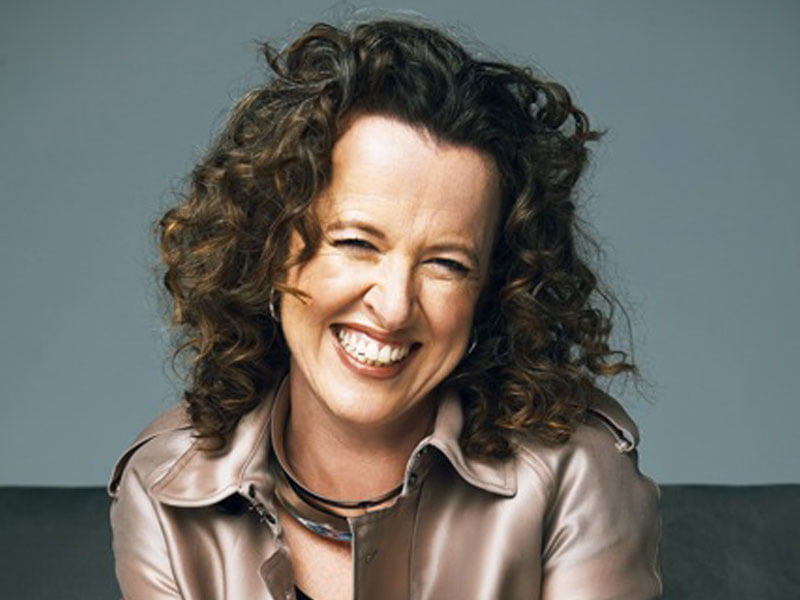Genevieve Bell should probably be cast in bronze at some point. She is a genuine hero among the many successful expat Australian executives working big jobs across the world, and an authentic voice that lends credibility to that most worn-out of terms: ‘thought-leader’.
Dr Bell has a great story. And while she has spent her career in the US, it is a great Australian story.
So here’s the thing. Dr Bell is currently a vice-president and Fellow at Intel Corporation in the US, running the company’s Corporate Sensing & Insights group out of the company’s Portland campus in Oregon.

But her upbringing was uniquely Australian, having spent formative periods of her childhood in various remote indigenous communities in the Northern Territory. She describes these communities as having had intermittent electricity, no television, no telephones.
Instead, she says there was the School of the Air, and a lot of time spent with the great Aboriginal storytellers among the community elders.
Yes, she moved on and earned graduate, masters and doctorate degrees in anthropologies from Stanford University. But the mark of these storytellers never left, and Dr Bell has woven storylines into her work ever since.
Once she completed her PhD, Dr Bell taught at Stanford for a time, before being recruited into Intel to build its social science research capability.
And this is what’s fascinating about this story. How does growing up through formative years in communities with rudimentary communications technologies and seeming isolation prepare a person so well for success in Silicon Valley, with the intensity of its human connectivity and its technology?
InnovationAus.com editor Elaine McFadden and I spoke to Dr Bell late last year, to reflect on the big technology challenges and opportunities that face the world and to ask how this policy-makers and other civic leaders should be thinking about these issues.
“You know, I mostly wasn’t in school [when I lived in those remote communities]. I had a pretty feral childhood, but it was also extraordinary. I was lucky enough to live with people in a moment in time when they could remember their country without whitefellas or fences. I went to the bush a lot with people who told us stories about our country that were indelibly imprinted on my soul,” Dr Bell said.
“I hung around with Aboriginal storytellers who were amazing. And then I hung around political and left-leaning ratbags in my childhood who were also incredible storytellers.
“And there’s something about wanting to tell the stories that matter that frames most of my existence, of wanting words to make a difference. I guess I didn’t think I’d every end up at Intel, and when I did, I certainly didn’t think I’d still be here as many years later as I was,” she said.
It’s a long way from the Northern Territory settlements of Ali-Curung where Dr Bell spent time to Silicon Valley. But she says the intensity of the human to human connections of a small town isn’t so different from the valley.
But she says it’s the outsider’s perspective that helped most. She moved around these communities as a kid (her mother Diane Bell was also an anthropologist). Dr Bell might have hung out with the local elders, but she was always the “red haired kid with freckles.
Being an Australian in Silicon Valley also gave her a helpful outsider’s perspective of the big conversations going on, making it easier to apply anthropological questions to new technology paradigms.
In 1999 when she joined Intel, that ‘Silicon Valley conversation’ was all about the internet and the promise of mass transformation that it would bring. The anthropological questions are straight forward: When applied to the internet, they are questions like where is it going, what is its purpose, how is it going to get there, what are the consequences going to be?
These fundamental questions inevitably underscore questions of ownership and power and equity of access and the many underlying issues that don’t get discussed upfront with the arrival of new technologies.
“That’s the good thing about anthropological questions, they tend to endure,” Dr Bell said. “We asked similar questions about telephone, about television, about water. The questions that are meaningful questions to ask about infrastructure – which the internet is – those questions are about the relationship between physical space and culture and society and governance.”
“There are also questions power, and social relationships, and inequity, and there’s a reason why we can ask all of those questions all over again – partly because you sometimes wonder if we don’t learn.”
It is probably an overstatement to call Genevieve Bell a technology sceptic. But she is certainly not one to believe that technology on its own can solve the world’s problems as they arise. Certainly not as it is explained by the technology companies. There is always the missing social and governance elements that are missing from these explanations.
And unless we are having the underlying conversations about technology – not least understanding issues of displacement, then civic leaders will struggle to come up with sensible and effective oversight and governance responses to technology change.
Dr Bell is asking these questions from inside Intel. Her latest work is around the ‘Internet of Things’ and smart cities programs.
Dr Bell will present the keynote address at the Linux.conf.au event in Geelong in the first week of February.
Do you know more? Contact James Riley via Email.

